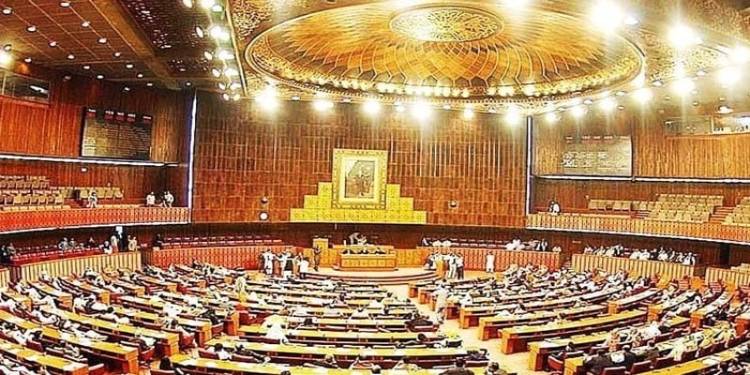
The National Assembly (NA) on Friday notified the Supreme Court (Practise and Procedure) Bill 2023, a law that would limit the authority of the chief justice of Pakistan (CJP), as an act, in defiance of the top court's order.
The Supreme Court's eight-member bench, presided over by Chief Justice Umar Ata Bandial, stopped the bill's execution. However, due to Clause (2) of Article 75 of the Constitution of the Islamic Republic of Pakistan, it was presumed to have received the president's assent (with effect from April 21, 2023) and was notified as a law today.
As soon as the legislation was approved by both chambers of parliament, President Alvi sent it back to the legislature.
However, after the president's refusal, it was made into an act today and approved by the joint session of the parliament.
The bill was not signed by the president, but under the Constitution, a bill that has been approved by a joint session of parliament becomes an act within 10 days.
On Thursday, President Dr. Arif Alvi once again sent back the Supreme Court (Practise and Procedure) Bill, 2023, without signing it.
The president stated in a notification that the "highest judicial forum of the country is currently hearing arguments regarding the competence of the legislation and the legality of the measure." "Therefore, no further action is necessary for deference to the same."
In the midst of a dispute between the government and the judiciary over elections in Punjab and Khyber Pakhtunkhwa, the law was passed by both the National Assembly and the Senate last month, and it was then forwarded to the president for approval.
However, President Alvi sent the bill back to the parliament for review, claiming that it "travels beyond the competence of parliament" and might be criticized as "colorable legislation" in its initial form.
Despite vehement opposition from the Pakistan Tehreek-e-Insaf (PTI), the administration managed to approve the law in a joint session of parliament on April 10, and it was then sent once again to the president for signature.
The Supreme Court's eight-member bench, presided over by Chief Justice Umar Ata Bandial, stopped the bill's execution. However, due to Clause (2) of Article 75 of the Constitution of the Islamic Republic of Pakistan, it was presumed to have received the president's assent (with effect from April 21, 2023) and was notified as a law today.
As soon as the legislation was approved by both chambers of parliament, President Alvi sent it back to the legislature.
However, after the president's refusal, it was made into an act today and approved by the joint session of the parliament.
The bill was not signed by the president, but under the Constitution, a bill that has been approved by a joint session of parliament becomes an act within 10 days.
On Thursday, President Dr. Arif Alvi once again sent back the Supreme Court (Practise and Procedure) Bill, 2023, without signing it.
The president stated in a notification that the "highest judicial forum of the country is currently hearing arguments regarding the competence of the legislation and the legality of the measure." "Therefore, no further action is necessary for deference to the same."
In the midst of a dispute between the government and the judiciary over elections in Punjab and Khyber Pakhtunkhwa, the law was passed by both the National Assembly and the Senate last month, and it was then forwarded to the president for approval.
However, President Alvi sent the bill back to the parliament for review, claiming that it "travels beyond the competence of parliament" and might be criticized as "colorable legislation" in its initial form.
Despite vehement opposition from the Pakistan Tehreek-e-Insaf (PTI), the administration managed to approve the law in a joint session of parliament on April 10, and it was then sent once again to the president for signature.

